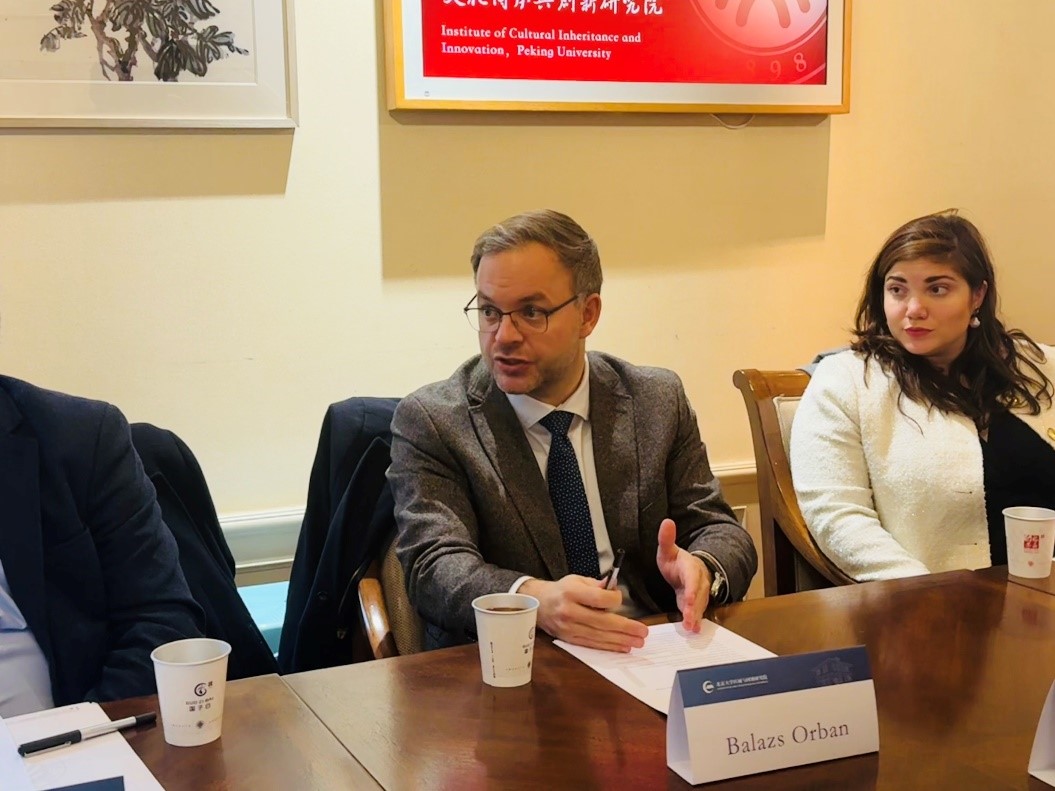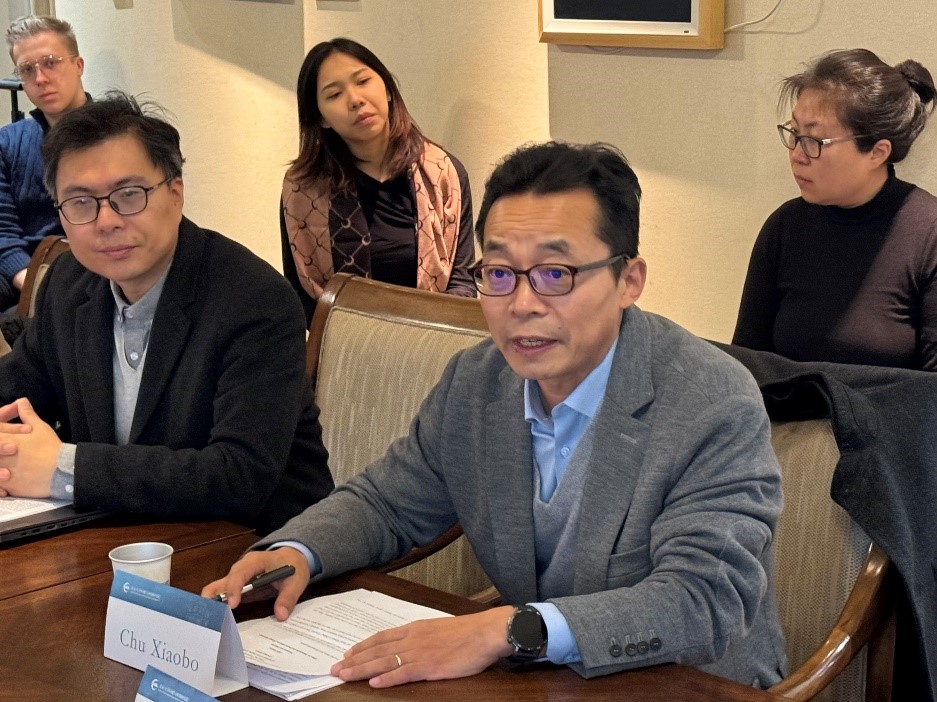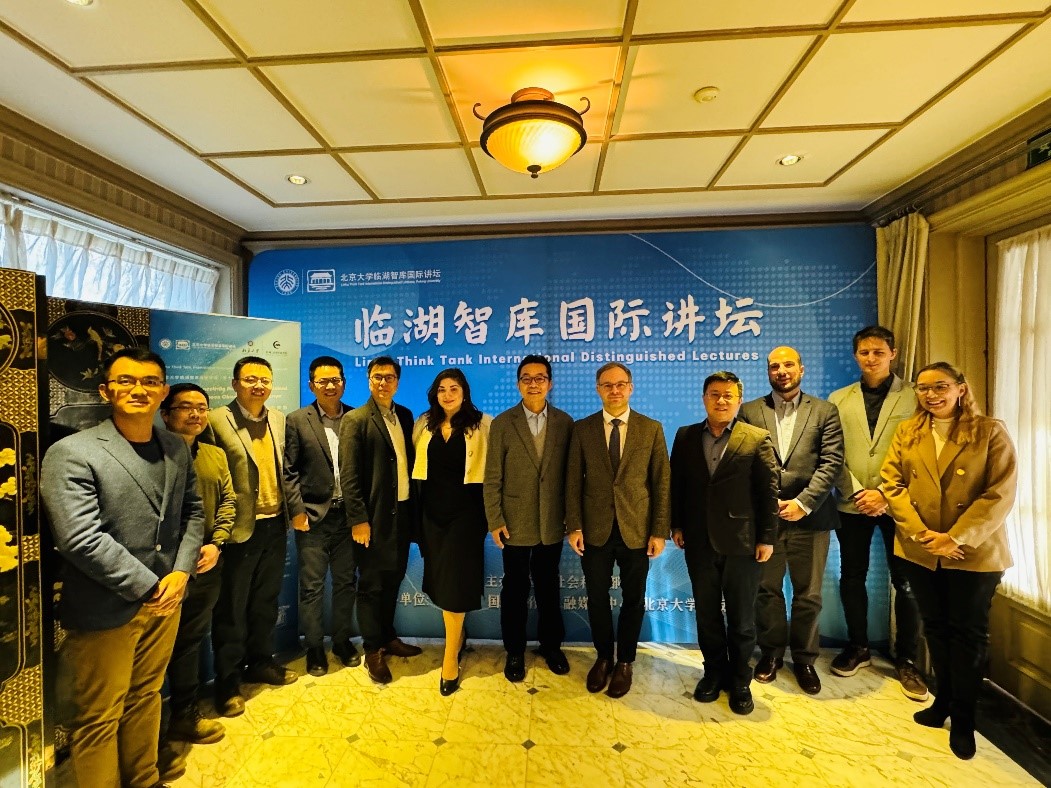
On November 26th, 2024, the 11th lecture of the “Linhu Think Tank International Distinguished Lectures” and the 38th session of the “Adventus Amicorum” seminar series organized by the Institute of Area Studies, Peking University (PKUIAS), took place at No. 51, Yannanyuan. The keynote speaker was Balázs Orbán, Political Director of Hungarian Prime Minister Viktor Orbán. His lecture, titled “Hungarian Connectivity Strategy and the Trilateral Relationship between China, the US and Europe”, introduced the main content of his latest book, Hussar Cut: The Hungarian Strategy for Connectivity. The seminar was moderated by Zhang Yongle, deputy director of PKUIAS. The discussion was attended by Chu Xiaobo, professor and director of the Office for Humanities and Social Sciences, Peking University; Wang Jisi, Boya Chair professor and founding president at the Institute of International and Strategic Studies, Peking University; Wang Dong, professor at the School of International Studies and executive director of the Institute for Global Cooperation and Understanding at Peking University; Duan Demin, director of the Center for European Studies and tenured associate professor at the School of Governance, Peking University; Kong Yuan, associate research fellow at the Institute of European Studies, Chinese Academy of Social Sciences; Shi Yue, assistant professor at the School of Foreign Languages, Peking University; Chen Xiaohang, assistant professor at the School of Law, Peking University; and Ning Ya, lecturer at the Department of History, Renmin University of China.

Before the lecture began, Chu Xiaobo, on behalf of the Office of Humanities and Social Sciences at Peking University, extended a warm welcome and sincere thanks to Orbán and his delegation. He characterized the China–Hungary relationship as being friendly and positive and that both countries were important partners on their respective paths to modernization, and suggested that the lecture would contribute valuable insights to the development of China–Europe relations and the strengthening of dialogue between Eastern and Western civilizations.
Orbán reflected on the reasons behind the conception of his book. The current global geopolitical landscape is undergoing profound changes. Over the past two or three decades, the rise of emerging economies has brought about diversified development models, challenging the neoliberal world order. Against this backdrop, Western liberals have proposed new strategies in response, attempting to divide the world into competing blocs. By courting allied countries, they aim to separate these countries from other regions of the world and deepen their dependence on the power centers of these blocs.
Orbán emphasized that the trend of East-West division was extremely disadvantageous for Hungary. Positioned at the “periphery,” Hungary is vulnerable to becoming a target in the geopolitical game between the East and the West. As such, Hungary has no intention of aligning with either side. On the contrary, Hungary places greater importance on maintaining active and open cooperation between the East and the West. This cooperation not only supports Hungary’s economic modernization but would also help the country secure a more independent and important position in the process of globalization.
From a historical and cultural perspective, Orbán pointed out that Hungary is the “most Western of Eastern countries.” Although geographically situated in the West, Hungary takes pride in its Eastern heritage and its membership in the Belt and Road initiative. Furthermore, in economic terms, Hungary is an export-oriented economy with a highly complex economic structure, and it would need to maintain openness and complexity in its economy moving forward.

At the end of the lecture, Orbán stated that connectivity is a strategic choice for Hungary based on national interests. Hungary hopes to remain fully open in the future and to serve as a bridge connecting the East and the West.
After the lecture, the attendees, including faculty and students, asked questions related to the themes of the lecture and the content of Orbán’s book, Hussar Cut: The Hungarian Strategy for Connectivity. Orban answered each question and engaged in lively discussions with them.


